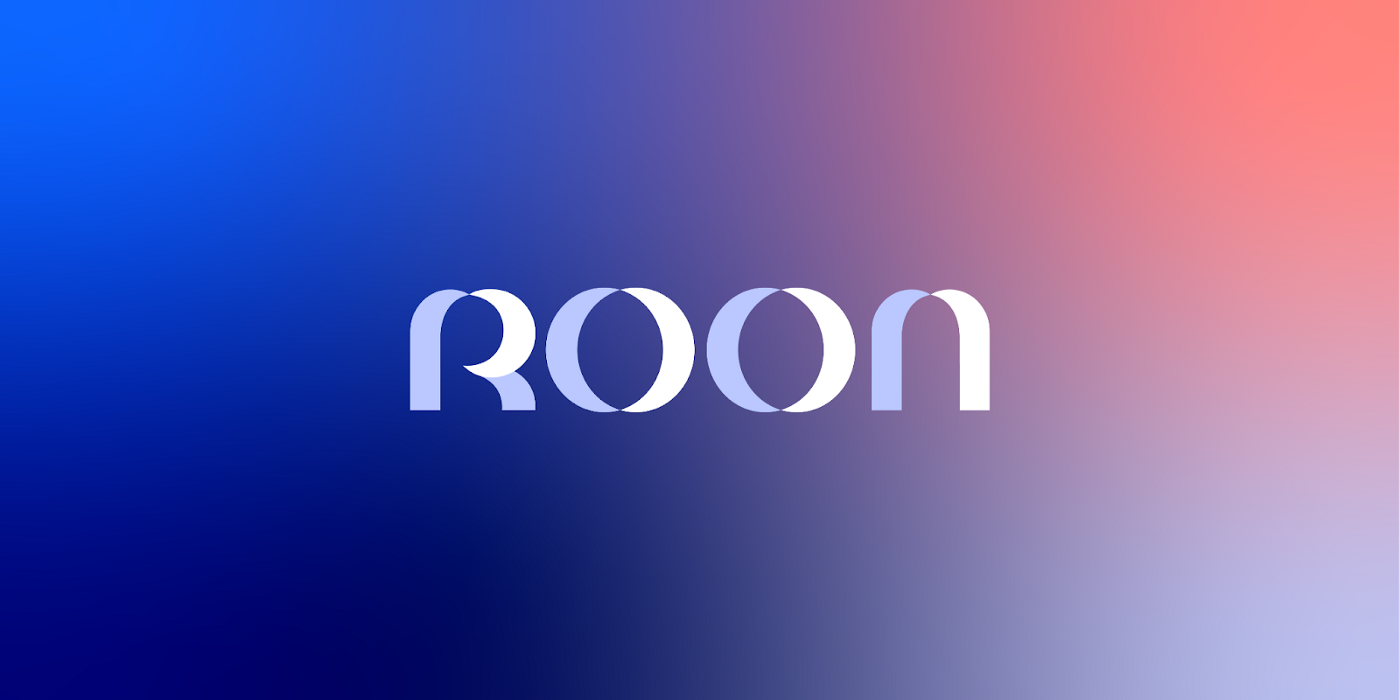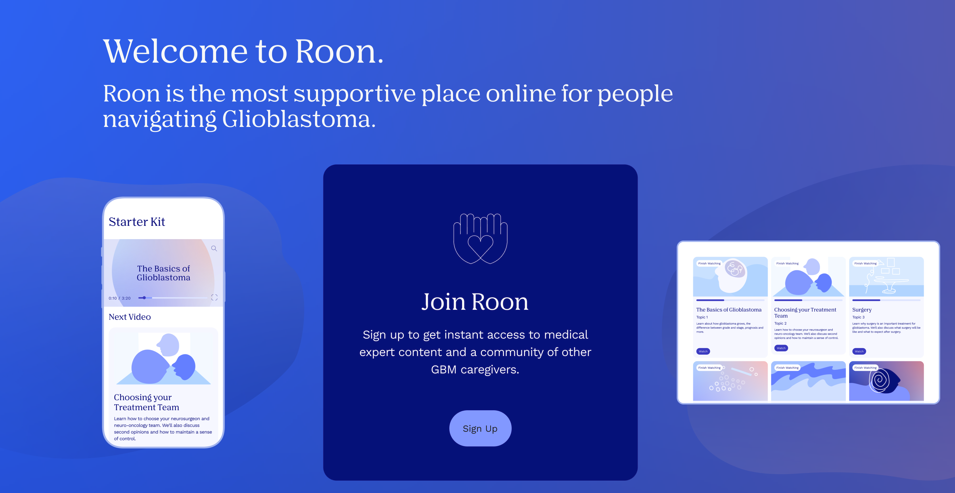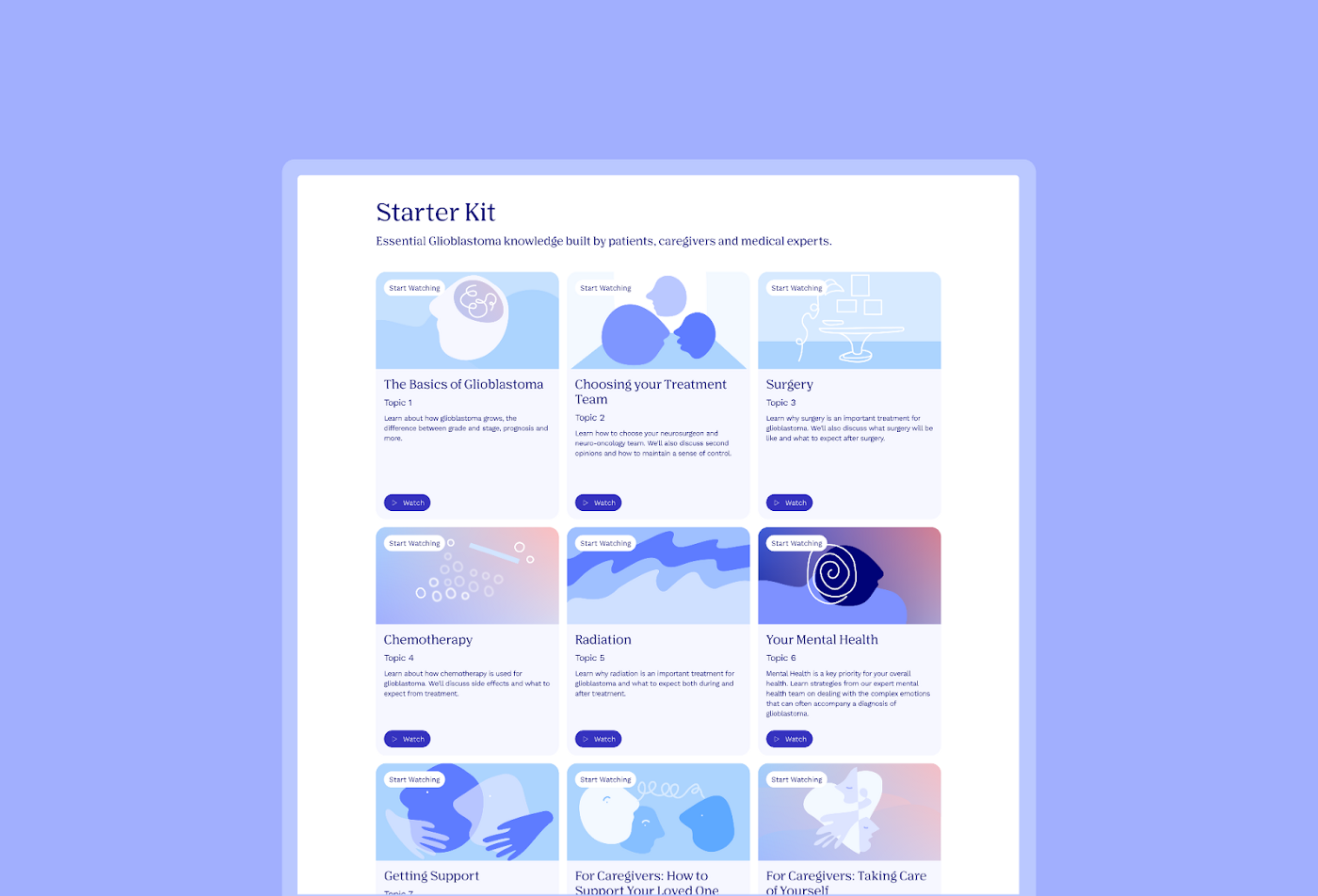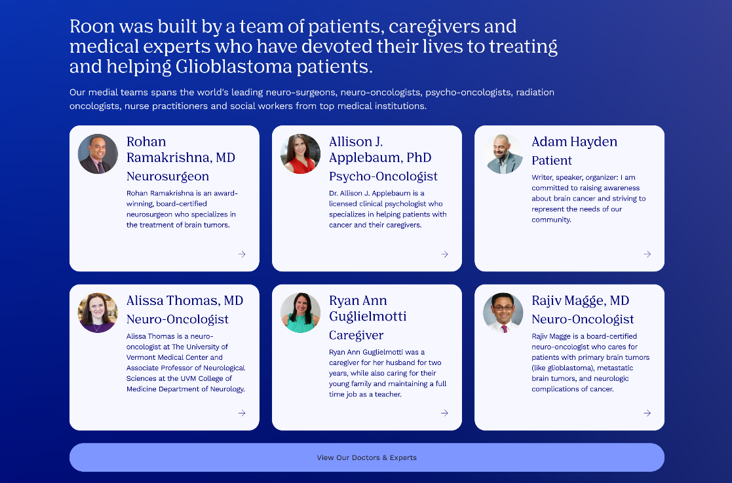
Sometimes, we get the call we never imagined would come: the news that we or someone we love has been diagnosed with a complex health condition. Our first instinct is often to seek answers. Where do we turn? The internet — even though medical professionals counsel us against uninformed web searches about specific conditions, which can often lead to increased tension and fear, as patients and loved ones scroll through conflicting and empty answers. We search for certainty, with hard questions, like: “How bad is it, really?” We scour the web for new treatments: “There must be other therapies out there.” We seek out others with shared experience: “Is this support group legitimate?” And despite all this searching, we don’t feel empowered; on the contrary, we’re overwhelmed — and terrified.
Nowhere to Turn
The bottom line: in a digital world overwrought with information, most patients and caregivers are still left in the dark. Medical content is poorly designed at best and dangerous at worst; it taxes already vulnerable and burdened users and leaves millions of people feeling further isolated.
Roon’s founders, Vikram, Arun, and Rohan, felt this problem acutely and wanted to solve it. When Roon co–founder and CEO Vikram Bhaskaran was at Pinterest, leading creator and content partnerships, he spent much of his time trying to help Pinterest users find inspiring content that helped answer various lifestyle questions: “What should I make for dinner?” or “Where should I go on my next trip?”
Around that same time, Vikram’s beloved father, Arun, was diagnosed with ALS, and Vikram began the long, arduous and emotional journey of caregiving across continents. He was struck both by his reflexive use of the internet to answer common medical questions and the remarkably poor online experience. If Pinterest had built a better search engine for answering subjective lifestyle questions, why didn’t a better tool exist to navigate complex health conditions?
In parallel, Roon Co-Founder Dr. Rohan Ramakrishna (Chief Medical Officer), Chief of Neurological Surgery at New York Presbyterian Hospital — Brooklyn Methodist and Co-Director of the Rhodes Center for Glioblastoma, was searching for a way to better support his patients through their journey. He wanted to point them to a trustworthy online source where patients and caregivers could find content, community and support informed by medical expertise. And, like most other doctors today, he advised his patients not to go online. Put simply, the internet was not prepared to help.
Arun Ranganathan (Chief Technology Officer) and Vikram’s colleague at Pinterest, had come to a similar set of conclusions about the internet’s capacity for patient and caregiver support. While caring for his aging parents, Arun experienced firsthand the challenges caregivers face — and the yet-unearthed potential for the internet to become a reliable resource for medical information. To realize the potential, however, was a Google-sized task, abundant with engineering complexities and opportunities for digital innovation. Through their shared experience, Arun, Rohan and Vikram brought Roon to life.
The Problem Space
Roon’s three co-founders identified multiple challenges within the current state of online medical content. First, when it comes to health and disease, medical education sites and apps are poorly designed, difficult to absorb, clinical in tone and rarely meet patients where they are in their journey. Furthermore, the only options for connecting with others navigating the same condition are ad-supported tech platforms like Facebook Groups or other broad social networks. While Facebook Groups maintains active health communities across many conditions, there are several problems with its overall structure. The site’s communities are rampant with medical misinformation, exploitation by scammers targeting vulnerable populations and general uneasiness from users about exposing their real identities and disclosing sensitive health information.
Through these insights, Vikram, Arun and Rohan identified a universal need for a new space online: one that combined medical knowledge from experts with the lived experiences of others navigating the same condition.

Finally, answers.
Enter TMV’s latest investment, Roon: a comprehensive new platform built to provide medically vetted, empathic information and support to patients and caregivers experiencing challenging health conditions — all in a singular, trustworthy community. Roon empowers the patient’s existing care circle by connecting them with others who are experiencing a similar journey.
The disease-specific model will focus initially on Glioblastoma, a rare and aggressive brain cancer. Roon will offer Medical Starter Kits (inspired by Masterclass) that span key elements of the disease in a series of 5–10 minute videos covering topics from navigating chemotherapy to caregiver self-care. Members can also share stories and ask questions as topical as scheduling and as complex as treatment decisions. The entire experience has been designed to meet patients and caregivers exactly where they are in their journeys, delivering guidance and comfort that empowers users to absorb the knowledge they need at the time, and move forward knowing that they’re making the best decisions along the way. Equally important, the Roon platform will help doctors scale their expertise in a one-to-many fashion through a dedicated and intentional medical creator tool.

The Circle of Care
Roon’s content is the result of an interdisciplinary team of doctors, designers, engineers, creators and product managers. Their medical content creators and Glioblastoma experts include patients and caregivers with lived experience, neurosurgeons, neuro-oncologists, psycho-oncologists, radiation oncologists, nurse practitioners and social workers from leading medical institutions.
Given their extensive collective of experts, Roon’s model stands apart with the space it provides for medical content creation, giving doctors a long-desired and intuitive tool to answer questions, exchange ideas and collaborate with others in the field.
In building this product, Roon will both reimagine the experience of online medical search and give the new emerging class of doctor-creator a social platform designed intentionally for healthcare.

In the Name of Healing
The name “Roon” was inspired by Vikram’s father, Arun — to serve as a reminder that the patient, the caregiver and their experiences should be at the center of everything Roon does. Spelled backwards, Roon becomes Noor, the Arabic word for “light in a time of darkness.” And Roon is poised to provide just that.
Written by Soraya Darabi